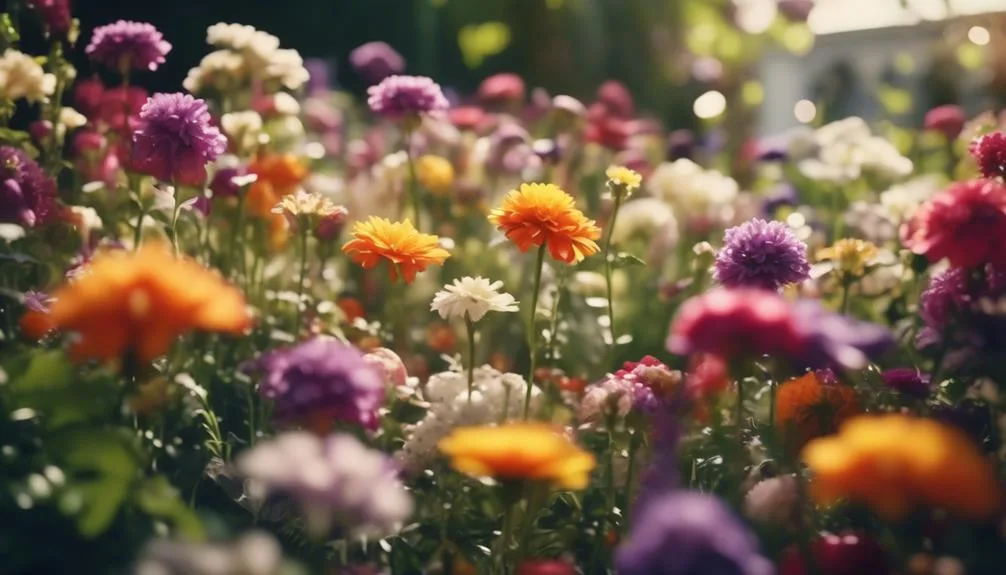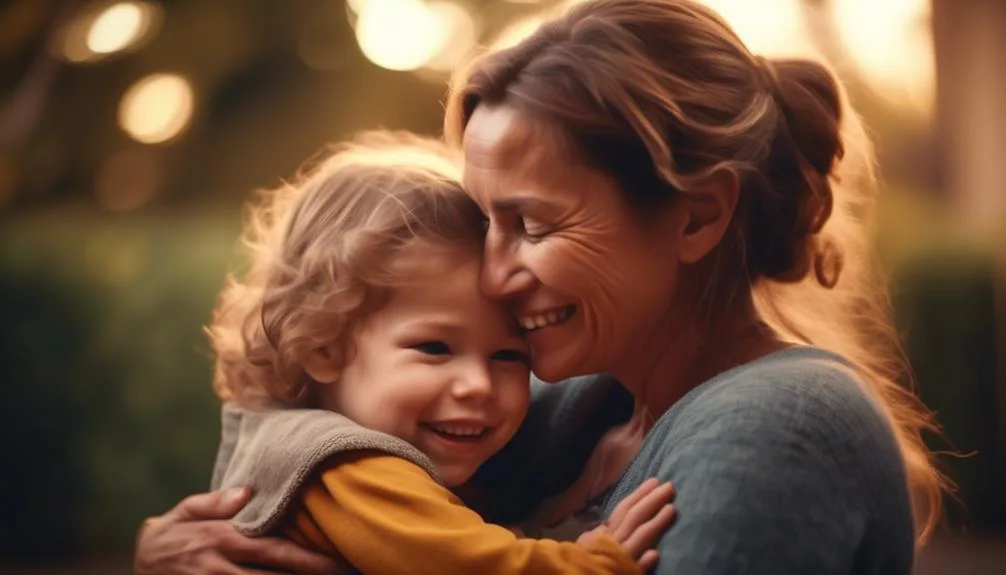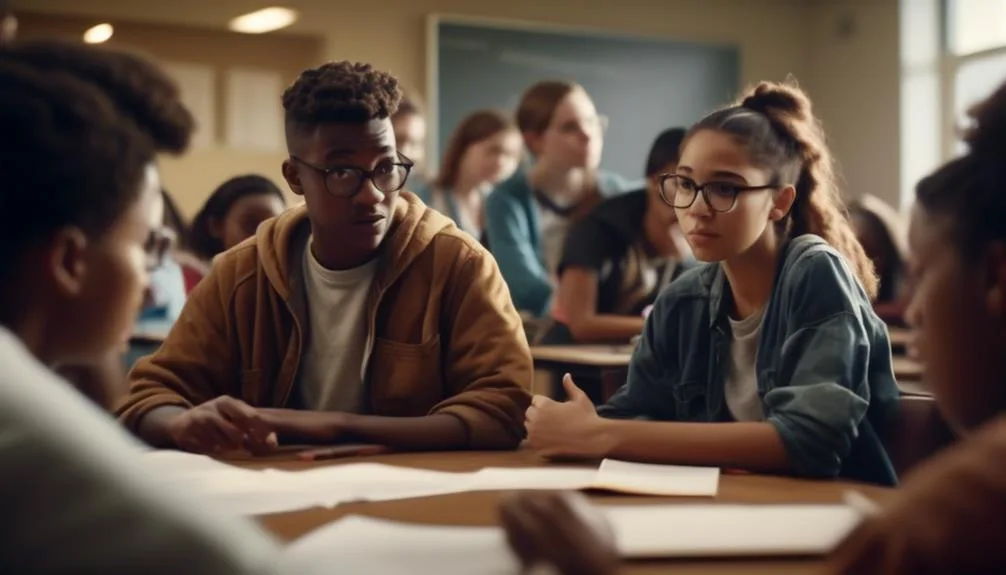Did you know that studies have shown that practicing unconditional positive regard can significantly improve mental well-being and overall life satisfaction? This powerful approach has been found to enhance relationships, boost self-esteem, and create a more positive and accepting environment.
But what exactly is unconditional positive regard, and how can you unleash its power in your own life? In this discussion, we will explore the concept of unconditional positive regard, its benefits, and practical ways to incorporate it into your interactions with others.
Get ready to discover a transformative way to cultivate acceptance and love in your relationships.
Key Takeaways
- Unconditional positive regard is an attitude of complete acceptance and love towards oneself or others, regardless of their actions.
- It is a defining feature of client-centered therapy and aims to build a positive and trusting relationship between the therapist and the client.
- Unconditional positive regard involves respecting the client's free will and seeing them as doing their best, while also encouraging them to share their thoughts, feelings, and behaviors openly.
- It creates a safe and non-judgmental space for clients to explore their experiences and promotes healthier and more fulfilling relationships in personal and professional settings.
The Definition of Unconditional Positive Regard
The definition of unconditional positive regard is the attitude of complete acceptance and love towards oneself or others, regardless of their actions or behaviors. It means valuing and accepting someone as they are, without any conditions or judgments.
Cultivating unconditional positive regard in everyday life can have numerous benefits in relationships. It creates a safe and non-judgmental space where individuals can express themselves freely, fostering trust and openness. When people feel accepted and loved unconditionally, it enhances their self-esteem and self-worth, promoting healthier and more fulfilling connections.
Practicing unconditional positive regard involves treating others with respect, empathy, and acceptance. It means actively listening, validating their emotions, and suspending judgment. By cultivating unconditional positive regard, you can create meaningful and supportive relationships that contribute to personal growth and well-being.
The Importance of Unconditional Positive Regard

By understanding the importance of cultivating unconditional positive regard, you can create supportive and nurturing relationships that foster personal growth and well-being. Here are three reasons why unconditional positive regard is crucial in relationships:
- The power of empathy: Unconditional positive regard allows you to empathize with others on a deep level. When you accept and understand someone without judgment, you create a safe space for them to share their thoughts, feelings, and experiences. This empathy enhances connection and strengthens relationships.
- The role of acceptance in relationships: Acceptance is fundamental in building healthy and fulfilling relationships. When you offer unconditional positive regard, you demonstrate acceptance of the other person as they are, including their strengths and weaknesses. This acceptance creates a sense of trust and safety, enabling personal growth and self-acceptance.
- Fostering personal growth and well-being: Unconditional positive regard provides individuals with the acceptance and love they need to feel safe and supported. It encourages them to explore their experiences, express themselves authentically, and work through their challenges. This fosters personal growth, self-esteem, and overall well-being.
Applying Unconditional Positive Regard in Therapy

To apply unconditional positive regard in therapy, it is important for the therapist to create a safe and non-judgmental space for clients to explore and express themselves. This involves developing empathy skills and creating an environment where clients feel accepted and supported. The table below provides three key strategies for applying unconditional positive regard in therapy:
| Strategies for Applying Unconditional Positive Regard in Therapy | |
|---|---|
| 1. Active Listening | Actively listen to clients without interrupting or judging. Show genuine interest in their experiences and emotions. |
| 2. Empathy | Seek to understand clients' perspectives and feelings. Put yourself in their shoes and validate their experiences. |
| 3. Non-Judgmental Attitude | Suspend personal judgments and avoid criticizing or evaluating clients. Create a space where they can freely express themselves without fear of judgment. |
Unconditional Positive Regard in Parenting

When applying unconditional positive regard in therapy, it's important for the therapist to create a safe and non-judgmental space for clients to explore and express themselves.
Now let's shift our focus to the subtopic of Unconditional Positive Regard in Parenting.
Parenting with unconditional positive regard involves accepting and loving your child unconditionally, valuing their inherent worth, and nurturing their self-esteem.
Here are three techniques to practice unconditional positive regard in your parent-child relationship:
- Active Listening: Take the time to truly listen to your child's thoughts, feelings, and experiences without interrupting or judging. Show genuine interest and empathy.
- Empathy and Validation: Validate your child's emotions and experiences, letting them know that it's okay to feel a certain way. Help them understand and express their emotions in a healthy manner.
- Consistent Support and Encouragement: Provide a consistent and supportive environment where your child feels loved and accepted. Encourage their strengths, celebrate their achievements, and guide them through challenges with love and understanding.
Unconditional Positive Regard in Education

Unconditional positive regard in education fosters a supportive and inclusive learning environment for students. Implementing unconditional positive regard in the classroom has numerous benefits.
Firstly, it creates a safe space where students feel accepted and valued for who they are, regardless of their abilities or background. This promotes a sense of belonging, which is crucial for their overall well-being and academic success. Students are more likely to take risks, participate actively, and engage in meaningful learning experiences when they feel supported and respected.
Furthermore, unconditional positive regard helps build positive relationships between teachers and students, leading to improved communication, trust, and collaboration. It also cultivates a growth mindset, encouraging students to embrace challenges, learn from mistakes, and develop resilience.
Unleashing the Power of Unconditional Positive Regard

By embracing the power of unconditional positive regard, you can create transformative and empowering relationships that foster growth and well-being. Here's how:
- Building Self-Esteem: Unconditional positive regard provides individuals with a strong foundation for building self-esteem. When you accept and value someone unconditionally, regardless of their actions, it helps them develop a positive sense of self-worth. This acceptance allows individuals to feel safe and supported in expressing themselves authentically, leading to increased confidence and self-belief.
- Fostering Empathy: Unconditional positive regard cultivates empathy in relationships. When you practice acceptance and understanding towards others, it encourages them to do the same. This empathetic connection creates a sense of mutual understanding and deepens the bond between individuals. It promotes open communication, compassion, and a willingness to see things from different perspectives.
- Creating a Positive Environment: Unconditional positive regard establishes a positive and non-judgmental space for personal growth. When you prioritize acceptance and respect in your relationships, it encourages others to feel safe and valued. This environment allows individuals to explore their experiences, emotions, and behaviors without fear of judgment. It fosters personal development, emotional well-being, and the discovery of one's true potential.
Frequently Asked Questions
How Does Unconditional Positive Regard Contribute to Personal Growth and Self-Acceptance?
Unconditional positive regard contributes to personal growth and self-acceptance by fostering an environment of complete acceptance and love. It allows you to develop self-compassion, embrace your strengths and weaknesses, and cultivate a positive sense of self-worth.
What Are Some Techniques That Can Be Used to Practice Unconditional Positive Regard in Parenting?
To practice unconditional positive regard in parenting, try active listening, empathy, and validating your child's emotions. Providing consistent support and encouragement helps foster their self-worth. This approach benefits their overall well-being and healthy development.
How Does Unconditional Positive Regard Enhance the Therapeutic Relationship Between a Therapist and a Client?
Unconditional positive regard enhances the therapeutic relationship between you and your therapist by creating a safe and accepting environment. It helps build trust, promotes open communication, and positively impacts your mental health and well-being.
Can Unconditional Positive Regard Be Applied in Other Areas of Life, Beyond Therapy and Parenting?
In all areas of life, you can unleash the power of unconditional positive regard. Embrace it in workplace relationships, where acceptance and empathy foster collaboration. Apply it in romantic relationships, creating a safe and loving space to grow together.
What Are the Potential Benefits of Implementing Unconditional Positive Regard in Educational Settings?
Implementing unconditional positive regard in educational settings can benefit students by fostering their motivation and engagement. When students feel accepted and valued for who they are, they are more likely to participate actively and take ownership of their learning.
Conclusion
Congratulations! You have now unlocked the power of unconditional positive regard.
Like a warm, comforting embrace, this attitude of acceptance and love has the ability to transform your relationships, boost your self-esteem, and create a more positive and accepting environment around you.
By practicing unconditional positive regard, you have the ability to create a safe and non-judgmental space for others to express themselves openly, fostering trust and deepening your connections.
So go forth, and let the power of unconditional positive regard shine brightly in all aspects of your life.

